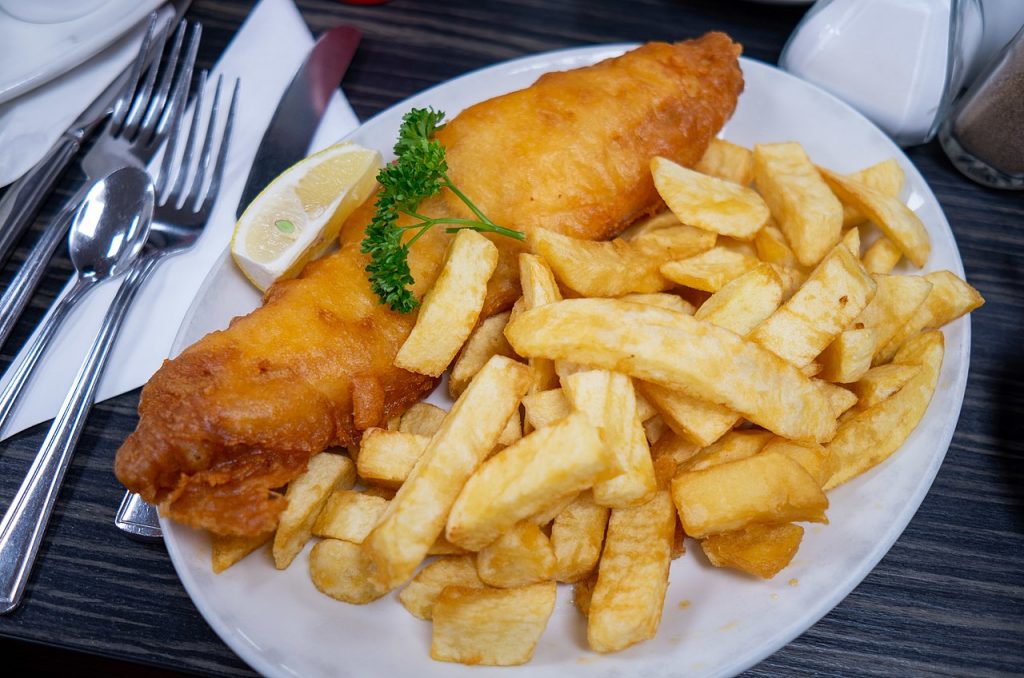Continuing Glosso’s short series* on “Words with Partners”, let’s look at foodie word couples. Some of these famous couples, which are technically “Siamese twins” (or “conjoined words” – see Thursday’s post on that subject), are phrases or expressions in their own right with meanings beyond the food pairings they name. Can you think of any more? [Update: a few more have been added, thanks to Candice*.]
Food couples with other meanings:
Bread and butter: a person’s livelihood or main source of income
Peaches and cream: describes a person’s complexion: of a cream color with downy pink cheeks
Milk and honey: prosperity and abundance
Apples and oranges: two things that are fundamentally different and therefore not suited to comparison
Salt and pepper: also an adjective, primarily describing hair and implying a certain age
Bread and water: a frugal diet that is eaten in poverty, chosen in abstinence, or given as a punishment
* Meat and potatoes: ordinary but fundamental things. “19th-century orchestral music is the meat and potatoes of a symphony orchestra’s performance season.”
Just plain old food couples:
Bacon and eggs
Fish and chips
Oil and vinegar
Surf and turf (North American: a dish containing both seafood and meat, typically shellfish and steak)
Peanut butter and jelly (North American, describing a sandwich)
Bangers and mash (British: sausages and mashed potatoes)
Mac and cheese (North American: macaroni and cheese)
Bubble and squeak (British: cooked cabbage fried with cooked potatoes and sometimes meat)
Beans on toast (British: baked beans on toast)
* From the South: Chicken and Waffles.
* From children’s rhyme: Georgie Porgie’s pudding and pie.
* From the mockumentary Spinäl Tap: “Cups and Cakes” by the Thamesmen.
* From Top 40 radio: “Incense and Peppermints” by the Strawberry Alarm Clock.
* From Catalonia: pa amb tomàquet (pan con tomate; bread with tomato)
* From the Bronx: Shells and sauce.
***
* See also Wednesday’s “I can’t live, if living is without you” about fossil words, and Thursday’s “Siamese twins, or conjoined words“. Later in the week, continuing this romp through “words with partners,” we’ll look at the triplet or trinomial — which I guess could be called “a linguistic ménage à trois” …
***

